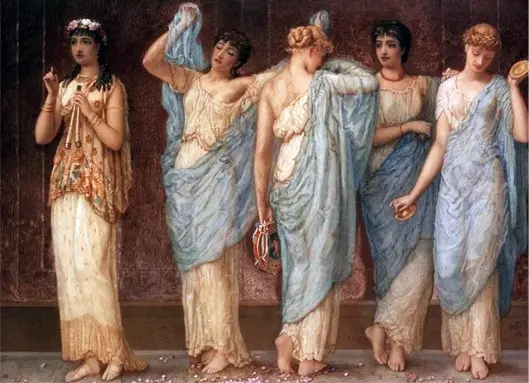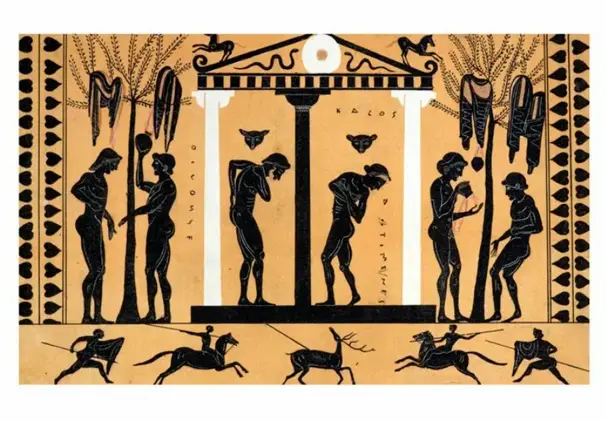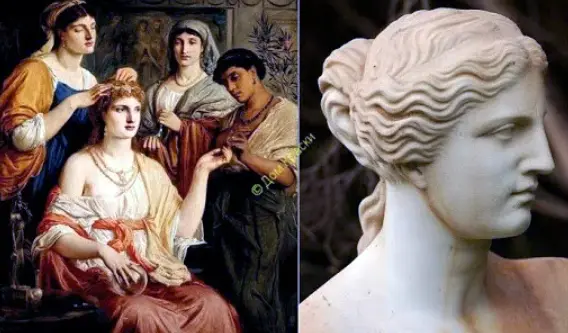How Ancient Greece Influenced Modern Standards of Beauty and Health

Ancient Greece has always been a source of inspiration for humanity, especially in terms of aesthetics and harmony. The gods of Olympus represented ideal proportions and a balance between the external and the internal, and their images still shape our perception of beauty. Even in contemporary culture, as seen in games like Gates of Olympus, we find references to these ancient standards. But how do these traditions manifest in today’s beauty and wellness industry?
Beauty and Health in Ancient Perception

For the Greeks, external beauty and inner health were two sides of the same coin. They believed that a well-maintained body and glowing skin reflected a balanced soul and mind. This belief remains relevant today as we emphasize not just our outward appearance but also our internal well-being.
The ancient Greeks utilized oils, herbs, and natural remedies to maintain their skin and hair in impeccable condition. These practices resemble modern SPA rituals, now complemented by advanced technologies such as laser hair removal, mesotherapy, and therapeutic massages.
Personal Care: The Legacy of Ancient Rituals

The ancient Greeks placed great importance on rituals for body and skin care, considering them an essential part of daily life. These rituals not only enhanced external beauty but also fostered internal balance. Oils, herbal blends, and clay played key roles, while baths and massages were not just cleansing routines but also methods for strengthening health.
Key elements of these traditions include:
- Natural components: The Greeks relied on nature’s gifts — olive oil, honey, and herbs such as rosemary and lavender were used to moisturize skin and relax muscles. These ingredients were applied at home and in public baths, spaces for purification and socialization.
- Regular rituals: Personal care wasn’t a sporadic activity. Daily cleansing, applying oils to the body, and frequent steam baths became cultural norms, promoting the habit of treating the body as a temple of the soul.
- Physical and spiritual harmony: Beauty rituals were deeply connected to philosophy. They not only improved outward appearance but also cleansed the mind. Greek philosophers argued that a well-cared-for body fostered mental clarity and inner peace.
Today, these principles resonate in modern cosmetic procedures. SPA programs with natural oils, clay-based masks, and herbal baths adapt ancient Greek traditions to our realities. These rituals continue to enhance appearance while rejuvenating energy after a demanding day.
Understanding the significance of these rituals allows us to view personal care not just as an aesthetic necessity but as a tool for achieving harmony in daily life.
Modern Lessons from the Ancient Greeks

Ancient approaches to beauty and health can easily be integrated into modern life. Here are some ways to incorporate these traditions into your daily routine:
- Natural products: Use oils like olive or coconut to moisturize your skin. This simple yet effective step ensures smooth and radiant skin.
- Detox procedures: Regular baths with herbs or salts help cleanse the body and relax muscles, mirroring Greek rituals.
- Physical activity: Practicing yoga or gymnastics strengthens the body and improves posture, both essential aspects of beauty in ancient times.
- Massage and relaxation: Include relaxing massages in your schedule to alleviate stress and maintain overall health.
These simple steps not only improve external appearance but also restore inner harmony.
Why Does Mythology Continue to Inspire?

The myths of Ancient Greece, with their idealized gods and heroes, remind us that beauty is not just an external trait but a harmony achieved through self-care. Modern beauty salons, such as Patricia Moreno Beauty Institute, build on these ideas, combining cutting-edge technology with philosophies rooted in ancient times.
The history of the Greeks teaches us that true beauty is a reflection of inner well-being. Taking care of oneself is not merely external maintenance but a path to harmony that brings us closer to ancient ideals.
